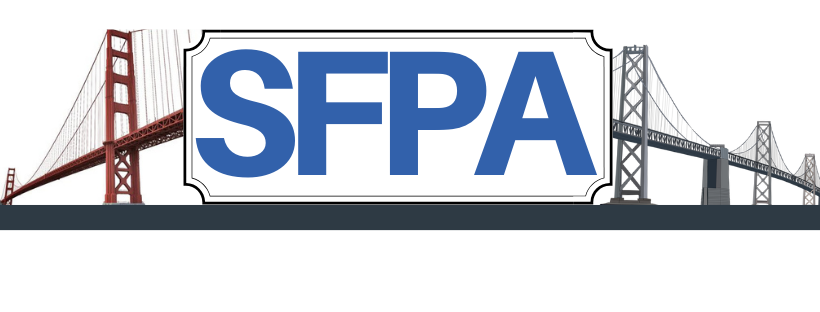ABA Journal
By Lorelei Laird
Posted October 10, 2018, 11:55 am CDT

Image from Shutterstock.
Updated: The American Bar Association filed an amicus brief Tuesday asking the California Supreme Court to affirm a decision critical of that state's bail schedule.
The case involves a habeas corpus petition filed by Kenneth Humphrey, who was charged with theft and making threats in May 2017 and was unable to make the initial $600,000 bail. The San Francisco Chronicle has more on Humphrey’s case. In January, California’s First District Court of Appeal ruled that the bail schedule the trial judge used is unconstitutional, because it doesn’t permit judges to consider defendants’ individualized circumstances.
The ABA’s brief cites the association’s policy, adopted as Resolution 112C at the 2017 ABA Annual Meeting, calling for an end to bail schedules that set financial bail according to the crime rather than the defendant’s level of danger to the community or flight risk. The ABA Criminal Justice Standards for Pretrial Release also call for jurisdictions to use financial bail as a last resort, with consideration of the defendant’s ability to pay. Financial bail lets wealthy people who may pose a risk buy their freedom, the brief says, while people of modest means are stuck in jail regardless of their risk levels. This violates their constitutional rights, the brief argues.
“In addition to treating defendants differently and arbitrarily depending on their financial status, money-bail systems violate the fundamental constitutional right to due process,” the brief says.
Humphrey was released in May into 24-hour home detention at a drug and alcohol treatment facility, where he also must wear an ankle monitor.
The case is part of an effort to drastically reform California’s bail system, which culminated in September with the passage of a bail-reform bill, known as SB 10. Lawmakers hailed it as a good first step, but even those sympathetic to that cause are skeptical about California’s recently enacted bail reform law, NPR reports.
Among those expressing doubts is Chesa Boudin, an assistant public defender for the city and county of San Francisco. When Boudin spoke to the ABA Journal for an April 2016 article about financial bail—the practice of charging money for the freedom of a person awaiting trial—he was clear that he thought it hurt the poor and could coerce people into pleading guilty just to get out of jail.
“If you plead guilty, you get out of jail today. If you assert your innocence, you’re staying in jail,” he said then. “To see that sort of coercive pressure exerted on people to waive their constitutional rights because they’re too poor to pay for their freedom is unbelievably frustrating.”
But Boudin told NPR that he thinks California’s new bail scheme, currently called SB 10 after the bill that passed through the state legislature and was signed in August, will make things worse, not better.
“I was disappointed and I felt betrayed,” Boudin told NPR. “The new SB 10 doesn’t actually change the racist system of mass incarceration. It just expands it.”
The trouble, Boudin and others say, is that the law is broadly written enough to give prosecutors the power to seek pretrial detention for any crime, regardless of its seriousness or whether the defendant has a prior conviction. This puts more power in the hands of judges and prosecutors.
John Raphling of Human Rights Watch adds that this could allow prosecutors to use pretrial detention as a way to coerce guilty pleas, just like before.
“This happens every day,” says Raphling, an attorney and a senior criminal justice researcher with Human Rights Watch. “Now you’re just giving them a whole other mechanism to keep people in.”
Reformers are also concerned about California’s plans to use a computer program to do a pretrial risk assessment. Pretrial risk assessments are one solution offered by bail reformers, but critics of computerized risk assessment are worried that the data it uses to determine risk can be biased by police or prosecutorial biases, leading to decisions that look like objective evaluations of facts but aren’t. NPR reports that it’s not clear yet what software would be used, and that each of California’s 50-plus counties may make or buy its own.
Cherise Fanno Burdeen is the executive director of the Pretrial Justice Institute who’s worked on ABA policy on this issue through the Criminal Justice Section. She says it’s possible that not much will change. After all, she says, these decisions have always been in the hands of judges who may be biased. She believes SB 10 will give those judges new guidance that could help reduce bias.
“All that the new system will do is help courts make better decisions,” she told NPR. “It should also result in the right people being identified as a threat to public safety. And it should result in fewer people being needlessly incarcerated pending trial.”
As NPR notes, the California bail industry is attempting to repeal the law through California’s ballot initiative system, which could put the bail industry on the same side as legal groups that would prefer to eliminate that industry. The ABA Journal previously reported that a lobbyist for the California Bail Agents Association has promised a strong pushback.
“You don’t eliminate an industry and expect those people to go down quietly,” lobbyist David Quintana told the Sacramento Bee in August. “Every single weapon in our arsenal will be fired.”
Updated at 1:28 p.m. to include the ABA’s amicus brief.
http://www.abajournal.com/news/article/bail_reformers_critical_of_california_bail_reform_law

